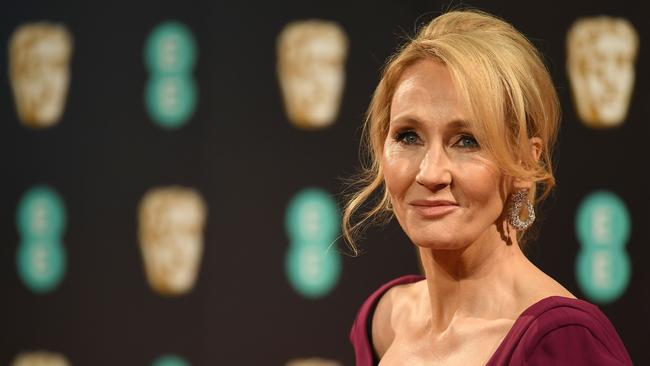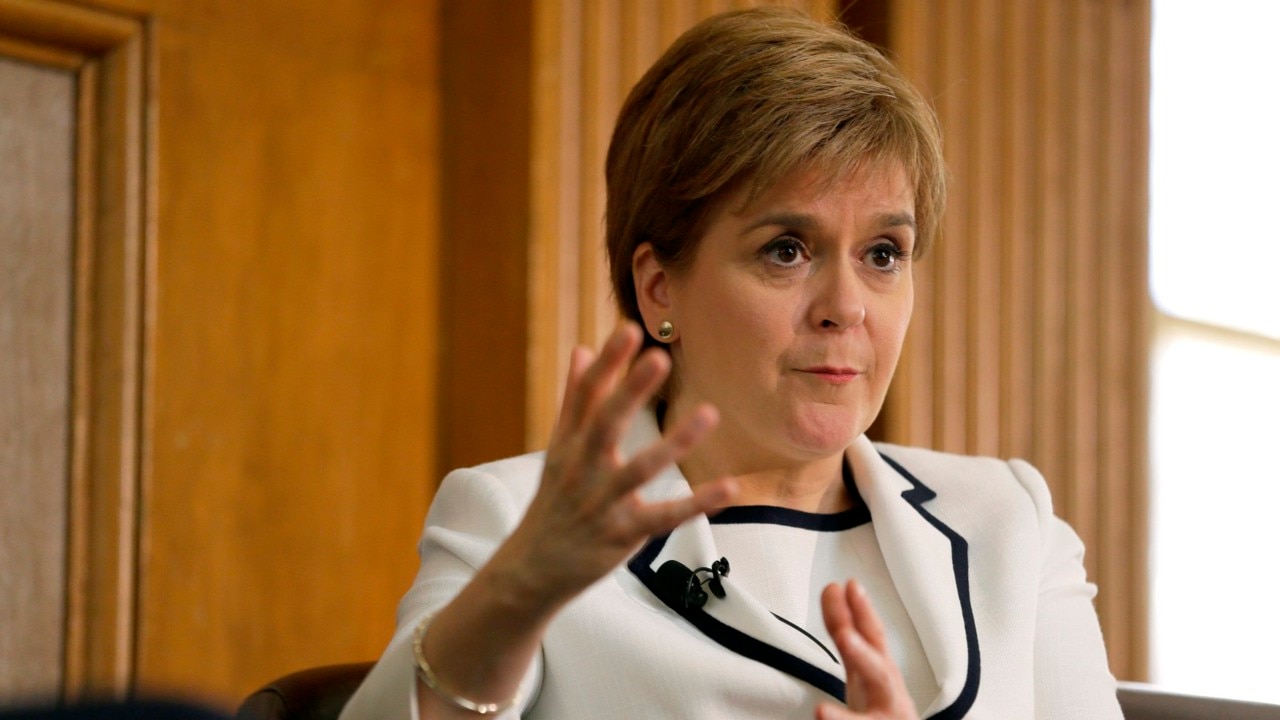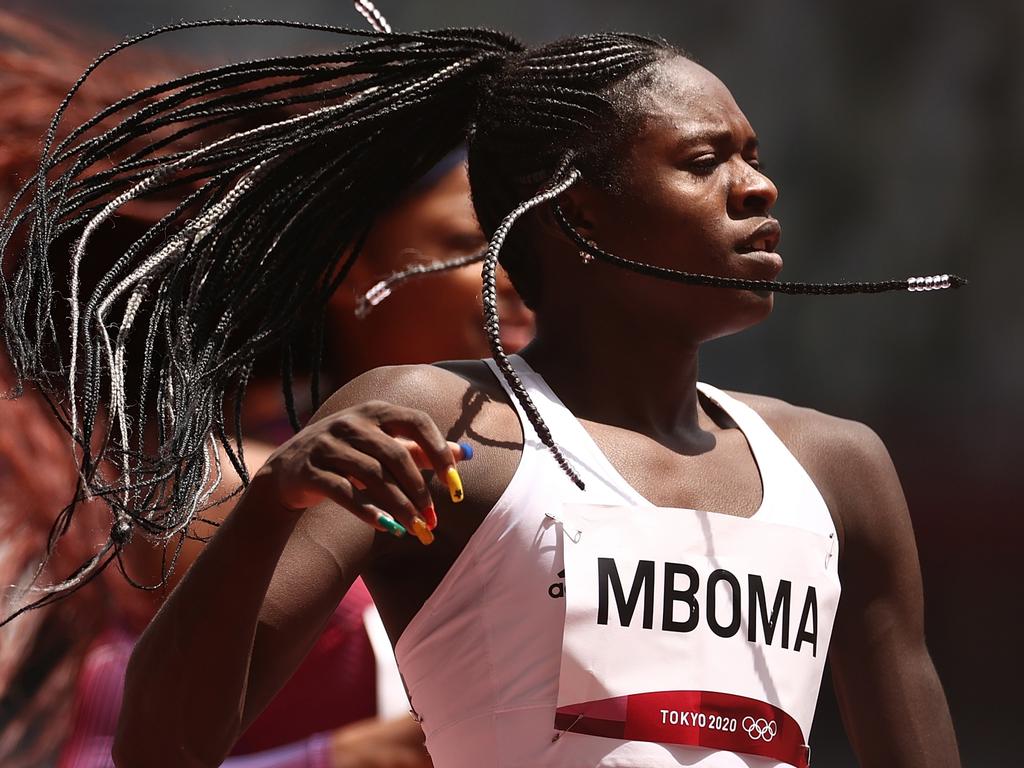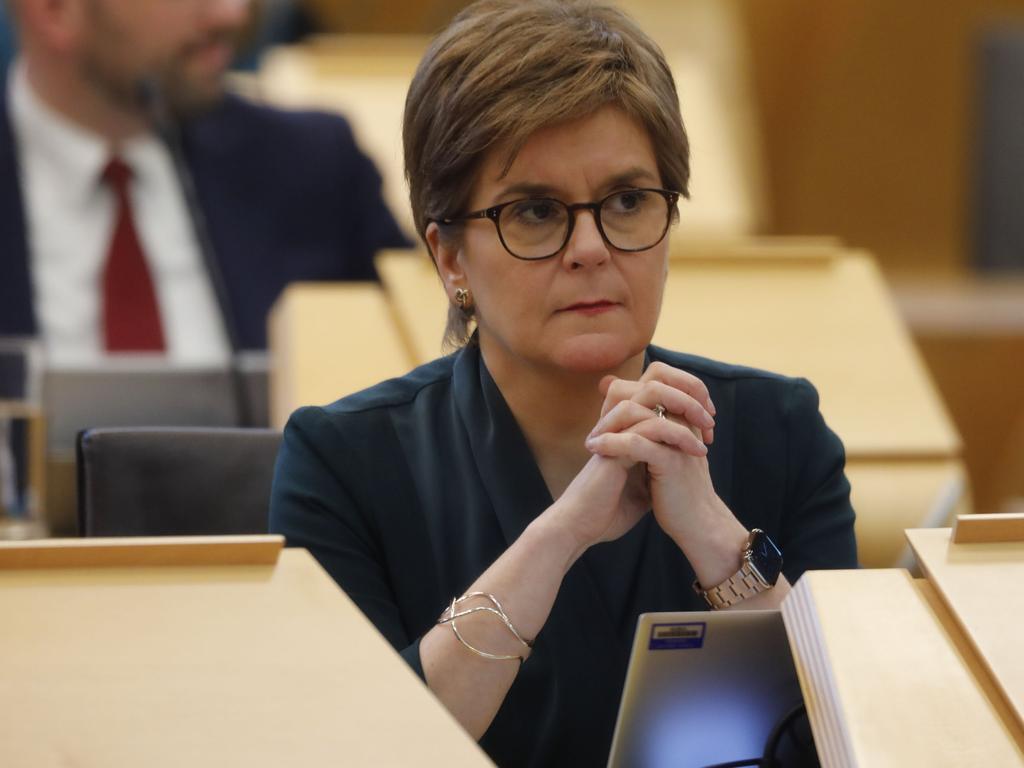
Every important social movement needs a catchword, and this word – woman – is ours. “Woman” is not a new word, of course, but it is a neglected one and, worse, a word that is being erased. And none of this augurs well for women.
For centuries women were invisible, ignored by the law, considered unworthy of the vote, discriminated against in the workplace, treated as serfs and incubators in the home. Now, in the 21st century, women are on the verge of erasure once again. And, in this modern era, the first brick to be removed from the wall that protects us is the word “woman”.
As well as proposing “woman” as the word of the year, I propose the woman of the year, even though it is only February, is JK Rowling.
History will one day record that Rowling is far more than a brilliant author of the most extraordinary series of books that encouraged generations of children to read, to love words and books, and to imagine.
During the past few years, Rowling has become one of the most persistent protectors of women. There is nothing good to be found on Twitter. The exception is Rowling’s Twitter feed, in which she dissects the madness of trans extremism, exposes the haters who wish to do harm to women who defend their right to be called a “woman”, and pokes fun at the sheer lunacy of erasing “woman” from our language. This may well prove to be Rowling’s most important work.
The erasure of the word “woman” isn’t some harmless linguistic flourish of inclusion. It precedes the very real, and very dangerous, exclusion of women and their rights.
Take this online advertisement for free cervical screening offered by the government of Jersey last week. The advertisement reads: “If you are a transgender man, a gender nonconforming person, or assigned female at birth and with a cervix, you can book your free cervical screening today.”

Though not a citizen of Jersey, I am driven to point out to the boffins who approved this government advertisement that women are not assigned female at birth. There was no bureaucrat present at my birth to assign a sex to me. My biology did that. I am a woman. No accreditation needed. Nor is it welcome.
Most of the time, Jersey, a small island a million miles away, is entirely irrelevant to Australians. But language matters, and this dangerous ideological regression needs to stop.
The deletion of “woman” from our language is preposterous as well as dangerous. Having battled to be treated as equals to men, women now face having their identity expunged to accommodate trans extremists.
And I mean extremists. Like any social movement, there are gradations of activism and varying demands. Right now, the demands at the extreme end of the trans movement are being treated as social justice gospel by governments and other institutions. Those in charge of these institutions are so frightened of being publicly shamed for offending fringe extremists that they would rather rub out the word “woman” and undermine women’s rights.
Jersey bureaucrats could just as easily have included “woman”, along with “a transgender man and gender nonconforming person” in their free cervical screening advertisement. Trans women are not women. Women are biological females. Women are not better, not worse, than trans women, just different. And we ought to be sophisticated and nuanced enough to say so. And to draft policies around this reality.
The failure to grapple with this reality was revealed in Scotland last week. Having pushed for new self-identification laws for people claiming to be trans, Scotland’s First Minister, Nicola Sturgeon, has, in the past week or so, been forced to pause government policy that houses trans women in female jails.
Isla Bryson, now a trans woman, was due to be transferred to a women’s prison. Bryson – born Adam Graham – raped two women and was arrested as a man. Concerns were raised by family of the victims that Bryson started to identify as a woman only to escape tougher conditions in a men’s prison.
In a humiliating backflip, Sturgeon paused Bryson’s transfer to Cornton Vale women’s prison only after a public uproar. It followed a similar case and more public disquiet concerning Tiffany Scott, a violent offender, who was due to move from a male prison to a women’s unit.
As Rowling tweeted, in Sturgeon’s Scotland, “trans women AREN’T women if they’re convicted double rapists”. Having asserted that trans women are women, Sturgeon’s political, policy and social mess comes from allowing ideology to trump reality.
As Rowling tweeted: “Sturgeon, her government and supporters have insisted that it is ludicrous to imagine anyone would dress in women’s clothes to get access to vulnerable women and girls. Wouldn’t happen. Everyone is who they say they are. To question this is hate.”
The madness continued when Scotland’s Justice Secretary, Keith Brown, said last week “we must not allow any suggestion to take root that trans women pose an inherent threat to women. Predatory men are the risk to women”.
His comments fly in the face of reality that led his government to pause housing trans women in women’s prisons: predatory trans women can be a risk to women too.
Once we stopped recognising that women are biological beings, different from trans women, it was inevitable that dangerous trans women – including some men who falsely claim to be women – would be housed in women’s prisons. It was inevitable too that women’s sports would turn into unequal playing fields where women are forced to compete against trans women whose male biology gives them an unfair physiological advantage.
Once governments introduced self-identification laws for trans people, the erasure of the word “woman” from our language became inevitable, along with the concomitant damage to women’s rights.
Dealing with trans rights is important, and it can be complicated. But expunging the rights of women is the worst and most dangerous way of dealing with these rights. If women can be so easily removed from our language, and the rights of women so easily undermined, it sets up a dangerous precedent for the future.








When “selfie” was declared word of the year in 2013, it caught on as common parlance. Then came “mansplaining” in 2015, a lame word people still can’t get enough of. Last year, “vax” became part of our lingua franca. Though the year is young, I plan to get in early and propose that the word of the year for 2023 should be … “woman”. Not chest feeder, or birthing parent, or person who menstruates, or any of the other abominations being used as replacements for “woman”.